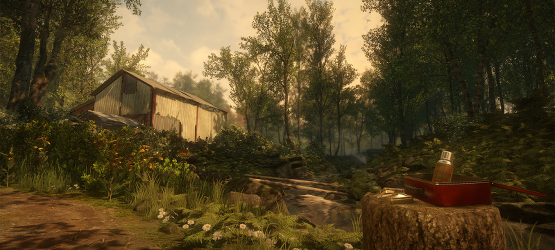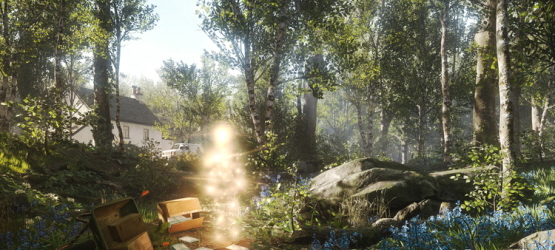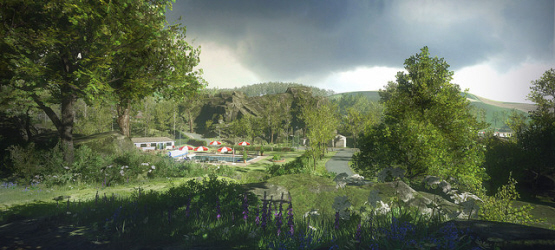If you were take a cross-section of popular culture at this very moment, sweeping aside the superhero pizazz and Taylor Swift songs in the process, you’d find that post-apocalyptic fiction occupies a significant chunk of the zeitgeist in 2015. Be it novels or television, film or video games, the genre has long proven to be one the more fertile sandboxes for creative thinkers to experiment in; a genre that elicits poignant themes of loss, sacrifice and that primitive, burning desire to survive.
When the pillars of society come crashing down, a myriad of hard-pressing questions come to the fore, laying the foundations for one of the most intriguing, existential storytelling vehicles in our industry. For Dear Esther devs, The Chinese Room, the end of days is facilitating a new, untainted world to explore in the upcoming adventure game, Everybody’s Gone to the Rapture.
Pastoral Apocalypse
Situated in the remote Yaughton Valley circa 1984, the studio’s first-person title is a decidedly British version of Armageddon. Rather than treading the well-worn path of big catastrophes and bigger explosions, Rapture’s story is wrapped up in a beautiful microcosm. Centering around a tight-knit community as opposed to charting events on a global scale.
And therein lies The Chinese Room’s unique selling point; maintaining the minimalist design of Dear Esther, the developers are ensuring that hand-holding and narrative direction remain on the sidelines, allowing players to slowly immerse themselves in the lush, eerily quiet farmlands of rural England.
Though its tranquil sun-kissed environments are certainly easy on the eyes, this raw beauty is juxtaposed by the underlying disorder, as humanity has seemingly gone out on a whipper rather than a nuclear bang.
Set in a time when the internet was little more than a DARPA research project, Shropshire represents a village that is essentially cut off from the world, inducing a tangible isolation as explorers poke and prod at The Chinese Room’s idyllic settlement. Not only that, in the fallout of the Cold War, the concept of global annihilation still simmered beneath the surface — hanging on doggedly in the back of society’s collective subconscious.
Wish You Were Here
Tapping into the societal paranoia of the time, Everybody’s Gone to the Rapture is oozing with character. Fans of Dear Esther will be immediately familiar with the storytelling template, as player choice has a direct influence on the game’s outcome. Controlling up to six main characters with as many story arcs, The Chinese Room’s latest is deceivingly complex, with a multi-layered mystery lurking beneath the abandoned British countryside.
What’s immediately apparent is something went horribly wrong; though what exactly that is has been kept under wraps since Rapture’s inception. Of course, the title of the game would suggest that the incident had biblical undertones, and the launch trailer at least indicates that one Dr. Katherine Collins has been instrumental in the spine-chilling events that unfolded.
Hell, according to the official site, the beginning of the game opens a mere 30 minutes after Armageddon took place. Without a mushroom cloud or flesh-munching zombie to be found, would-be adventurers have stipulated that the cause is scientific — even alien — as your community disappeared without a trace.
Putting aside fan theories for the time being, there’s something to be said about picking up a post-apocalyptic story after the fact. Think Rick Grimes stumbling out of the hospital in AMC’s The Walking Dead, we as an audience view the ruins from his eyes, as we desperately try to make sense of this ravaged new world. For Everybody’s Gone to the Rapture, this feeling is compounded by telling its story from a first-person perspective.
The Beginning of the End
Forget audience surrogates, The Chinese Room is aiming to fully envelope you in its sepia-tinged experience, as you trudge through a game world where a picture — or spiritual light — says a thousand words.
But it isn’t just the visuals that have struck a chord with the PlayStation community; rather, the operatic score is shaping up to be one of Rapture’s more important components. Composed by studio co-founder Jessica Curry and brought to life by the divine tones of Elin Manahan Thomas, the score is infused with a profound sense of melancholy.
In a similar vein to thatgamecompany’s beloved Journey, The Chinese Room’s soundtrack is dynamic, allowing the non-diegetic music to subtly harmonize with in-game events. For instance, voice clips and wayward recordings will be littered around this most serene environment, acting as fundamental pieces of the enigmatic story. Stumble upon these and the game’s score will effectively augment the raw, heart-felt emotions felt by members of the community on the eleventh hour.
If Everybody’s Gone to the Rapture finds beauty in the apocalypse, then its soundtrack is set to amplify that organic elegance.
Disconcerting yet beautiful, serene yet haunting, The Chinese Room’s soon-to-be-released indie holds the potential to be one of PlayStation 4’s more intriguing exclusive titles in a burgeoning indie catalog chock-full of stellar experiences. Thrusting ordinary people into an extraordinary situation, Everybody’s Gone to the Rapture is a first-person experience (FPX) three years in the making, one which imagines the immediate aftermath of the apocalypse as the well-oiled machine of society goes up in smokes.
When humanity’s story ends, a new one begins. Everybody’s Gone to the Rapture is set to grace PlayStation 4 on August 11. Tell us, will you be venturing through the tall grass of Yaughton Valley next week? Let us know below.
Essential Reading:
- Everybody’s Gone To The Rapture Review – Transcendent (PS4)
- 10 Indie Games to Look Out for at E3 2015
- Examining the Localization of Persona
Everybody's Gone to the Rapture Feature
-
Everybody's Gone to the Rapture
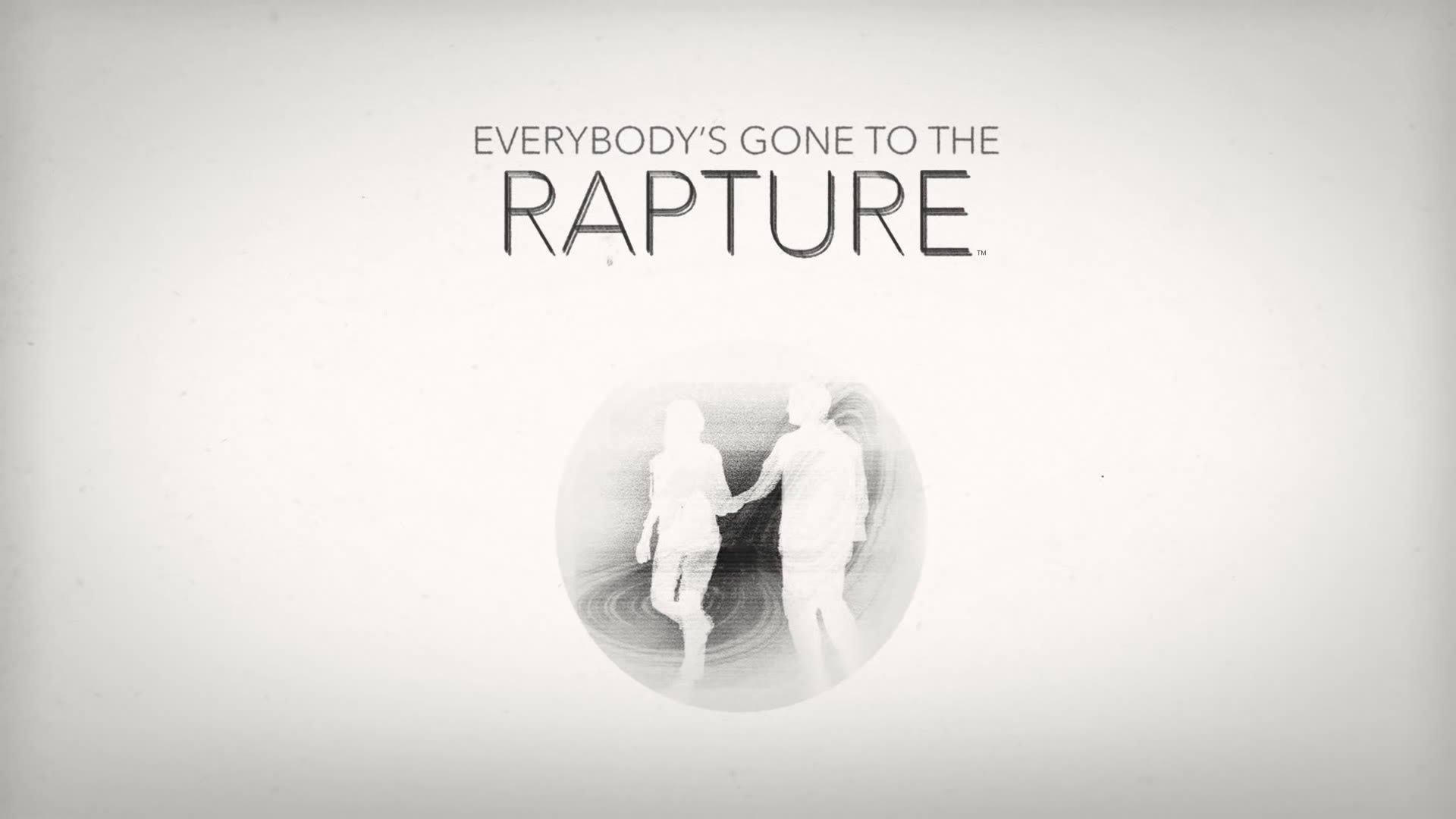
It's quiet...too quiet.
-
Picture Perfect
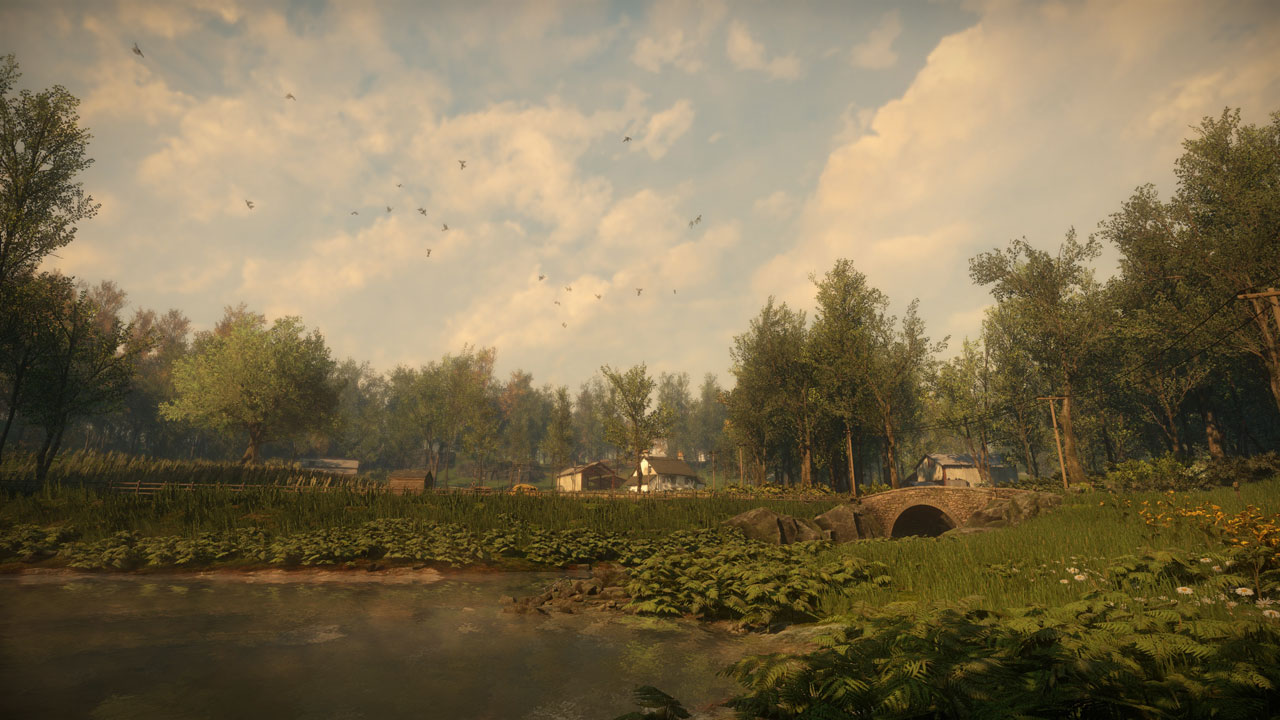
Don't be fooled by the game's stunning environments (powered by CryEngine), there's an unnerving mystery lurking beneath the beauty.
-
Environmental Storytelling
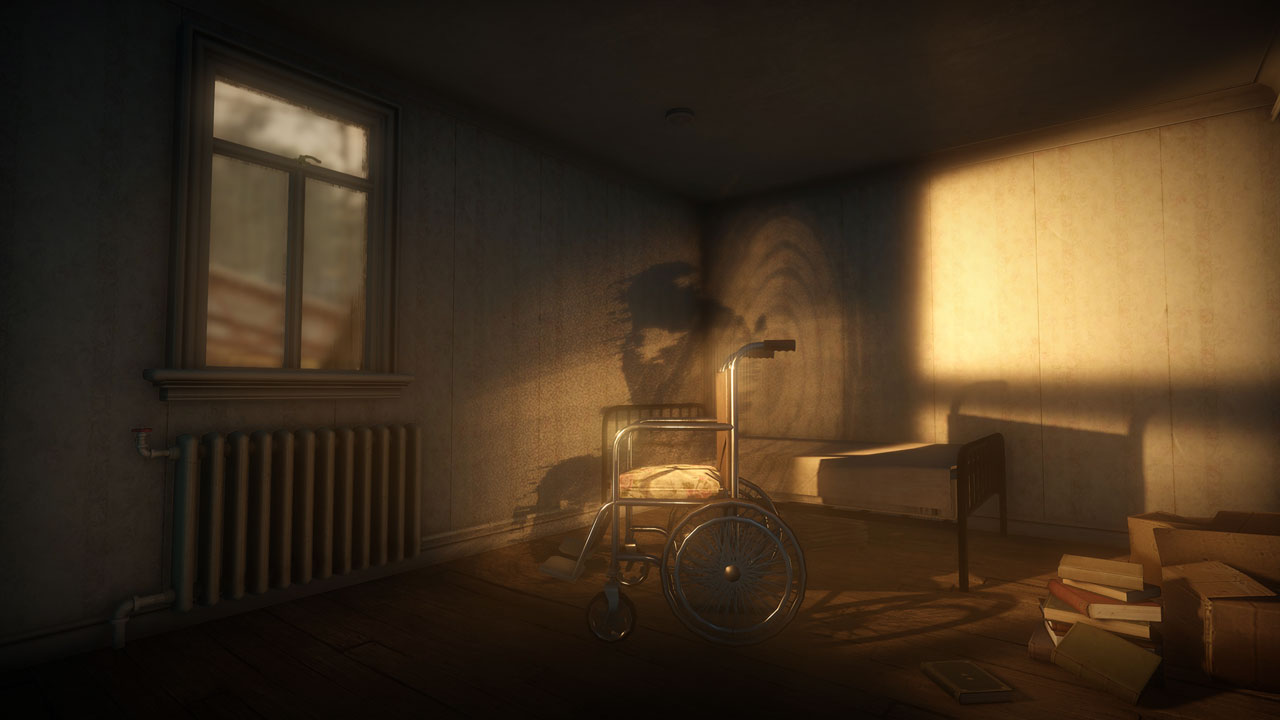
With little-to-no human interaction, Everybody's Gone to the Rapture will tell its story through audio vignettes and wayward recordings.
-
Where Will you Be?
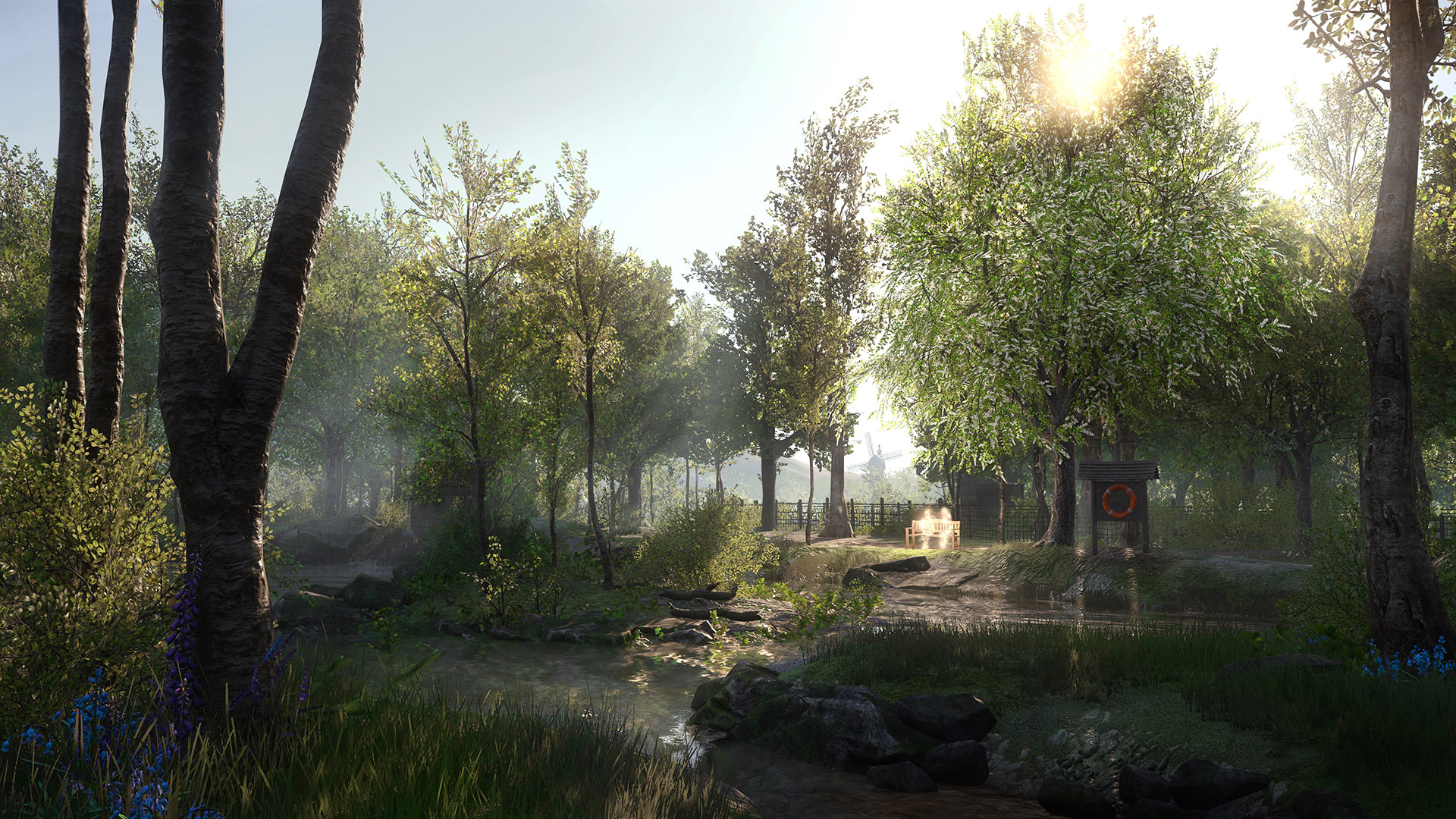
Within these you'll learn about the life and times of the Yaughton Valley people; their hopes, dreams and fears before armageddon loomed.
-
Bring Me That Horizon
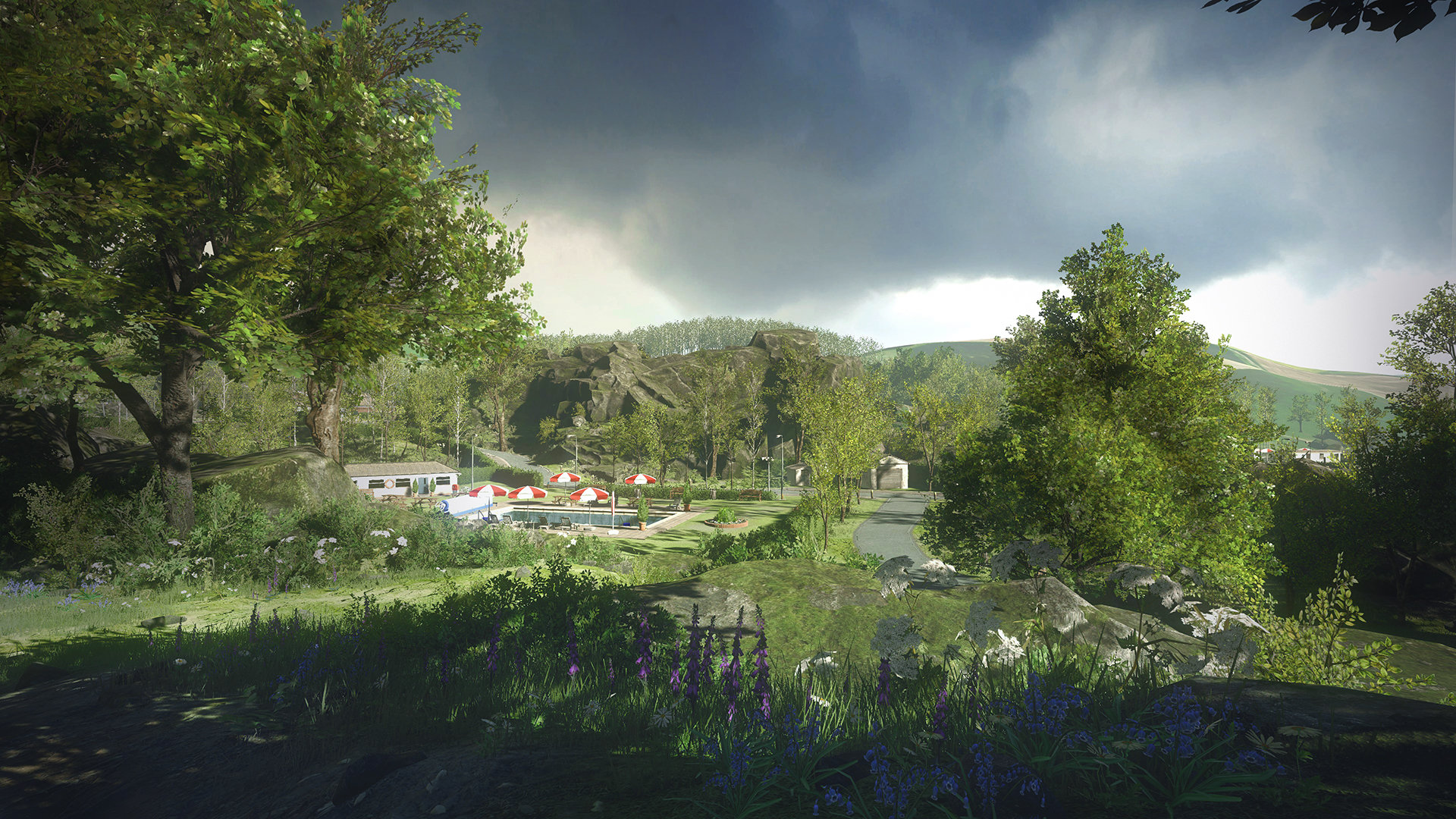
The Chinese Room has promised an open-world playground to explore, as you try to piece together the puzzle and solve the mystery at the crux of the story.
-
Sensory Overload
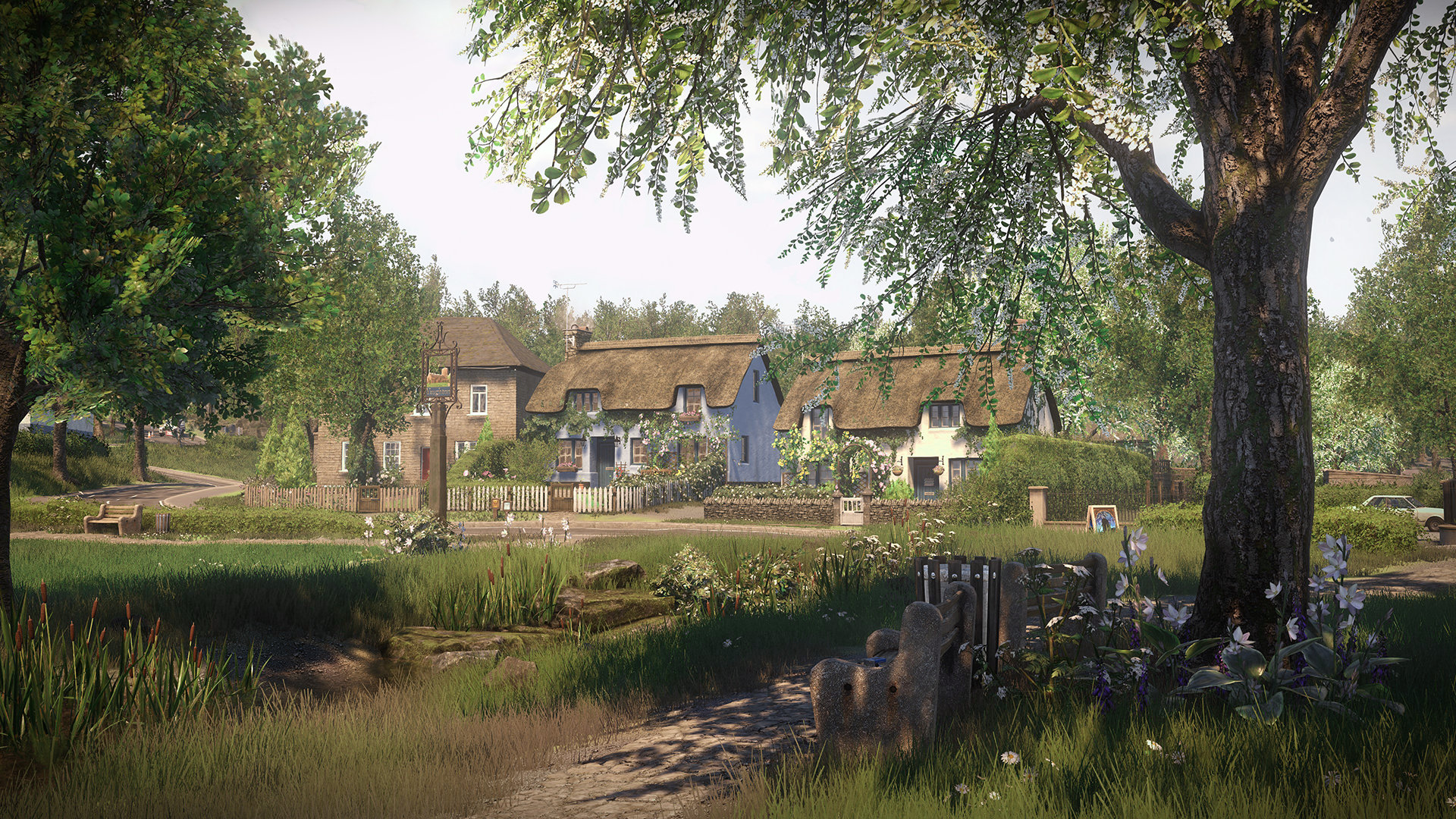
Beyond the astute visuals, Everybody's Gone to the Rapture also boasts a dynamic, operatic soundtrack that will amplify the raw emotions felt by those who have seemingly disappeared without a trace.
-
Are you Invited?
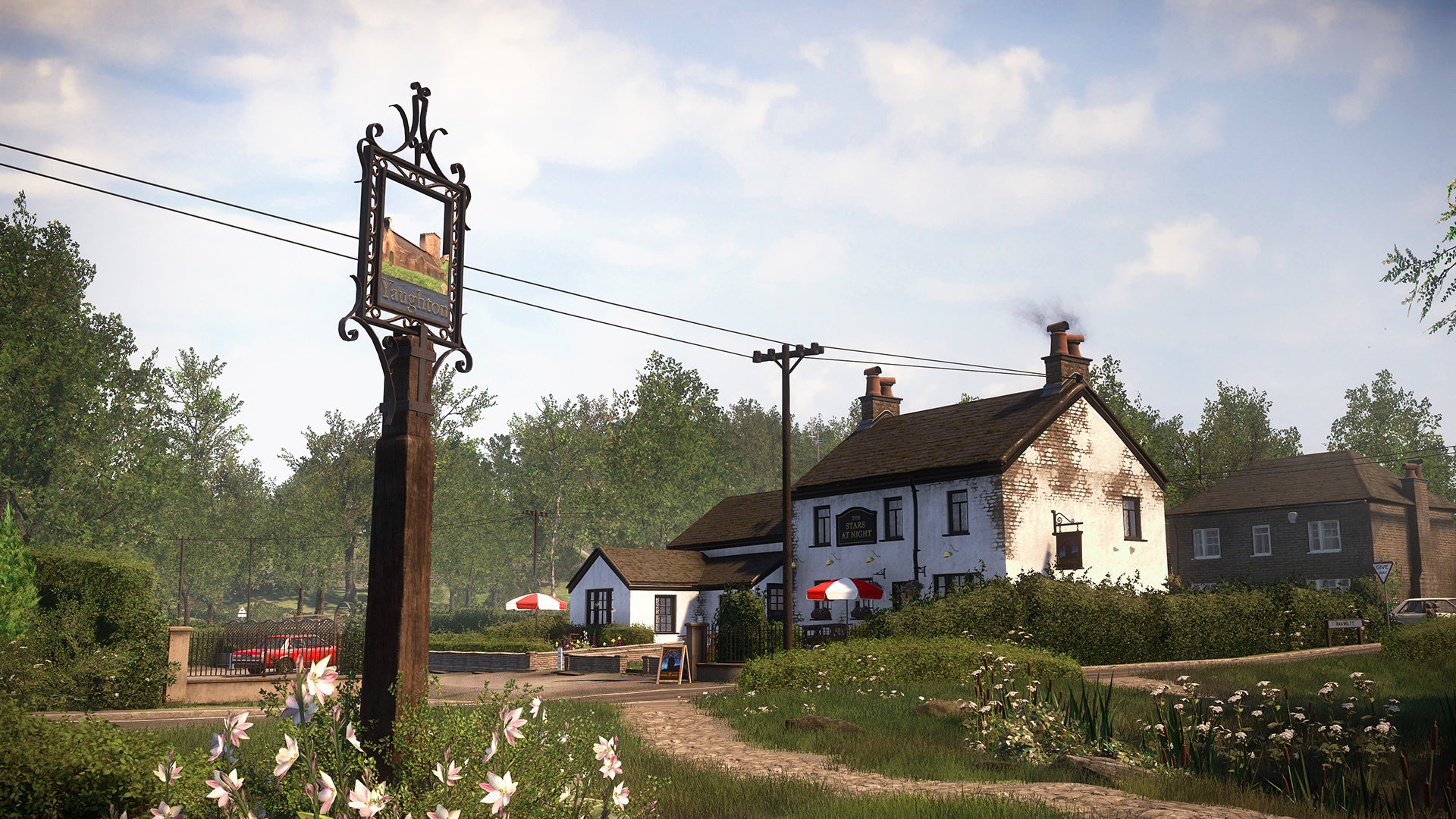
Everybody's Gone to the Rapture launches exclusively for PlayStation 4 on August 11. Then we can head to the Winchester, have a pint, and wait for all of this to blow over.
